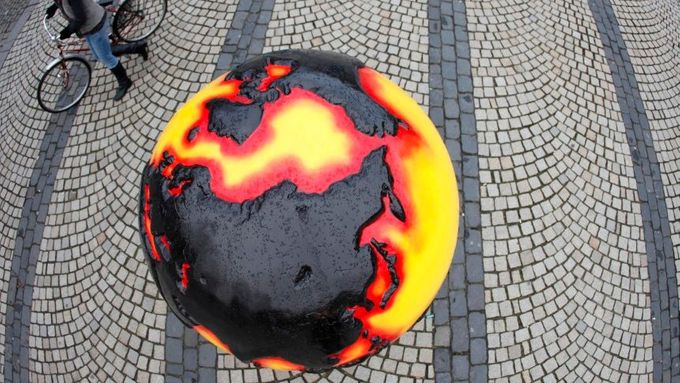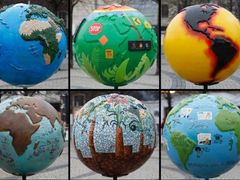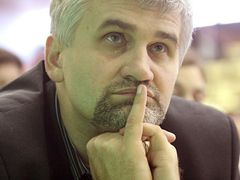Prague/Copenhagen - A two-week session on global climate change has kicked off in Copenhagen with delegates hailing from 192 countries.
Amidst increasingly alarming predictions and catastrophic visions, the eagerly anticipated U.N.-sponsored conference is expected to write history.
It should produce an agreement on curbing CO2 emissions as well as other steps to fight the rising temperatures of the Earth. The new agreement should replace the Kyoto Protocol which ends in 2012.
Held under the aegis of the UN Framework Convention on Climate Change (UNFCCC), more than 15 thousand participants are expected to attend the conference.
Among the scheduled world leaders are US President Barack Obama, French President Nicolas Sarkozy, Australia's PM Kevin Rudd and China's Wen Jiabao.
The Czech delegation is headed by PM Jan Fischer.
Skeptics still around
While most of the countries in the world agree that the global warming is manmade, there are still some skeptical voices that are adamant no urgent action in saving the planet is needed.
Among those hoping no agreement will be concluded in Copenhagen is Czech president Václav Klaus. This week he marked the plans to reduce CO2 emissions as unrealistic.
Klaus will not attend the conference but his book "Blue, not green planet" was published in the Danish language this week.
Meanwhile, former president Havel praised the Greens for contributing to the worldwide debate on climate change.
"It is good that you deal with the climate in the Czech Republic," says a letter written by Havel to the Green Party. The Greens used the issue of global warming in their election campaign.
Czechs as "dirty slobs"?
According to the latest report on Czech environment, the country will be viewed among those producing high greenhouse gases in Europe.
The country's carbon-dioxide emissions amount to 14 tonnes per head, one of the highest figures in the EU and way above the EU's average of some 10 tonnes per capita. Only Finland, Ireland and Luxemburg are faring much worse.
Noteworthy is the fact the whole EU accounts for 14 percent of the world's total greenhouse emissions. The United States and China are the world leading polluters (20 percent).
The Czechs have increased the greenhouse emissions mainly due to the rapid growth of car industry. The reason number two is natural disasters that caused massive logging.
If it were not for the crisis, the Czech greenhouse emissions would be much higher. Czech coal-fired power stations, steelworks and chemical plants emitted less carbon dioxide because of slower production. Thus they involuntarily lowered the emissions by 8 percent last year. In 2007 Czech companies emitted 87.8 million tonnes of carbon dioxide.
Environment minister Jan Dusík as well as the whole environment ministry see the situation optimistically.
"I don't have a feeling that we will be taken for "dirty slobs" (at the conference)," Dusík told Aktuálně.cz on the eve of the Copenhagen conference. He added that there is a realistic plan to curb the Czech greenhouse emissions.
By 2020 the country could lower the CO2 emissions by 40 percent, says the ministry's latest version of the Environment Protection Policy. "In 2020 we could have the annual production of greenhouse emissions lower by 28 million tonnes, compared to 2005," says the ministry.


